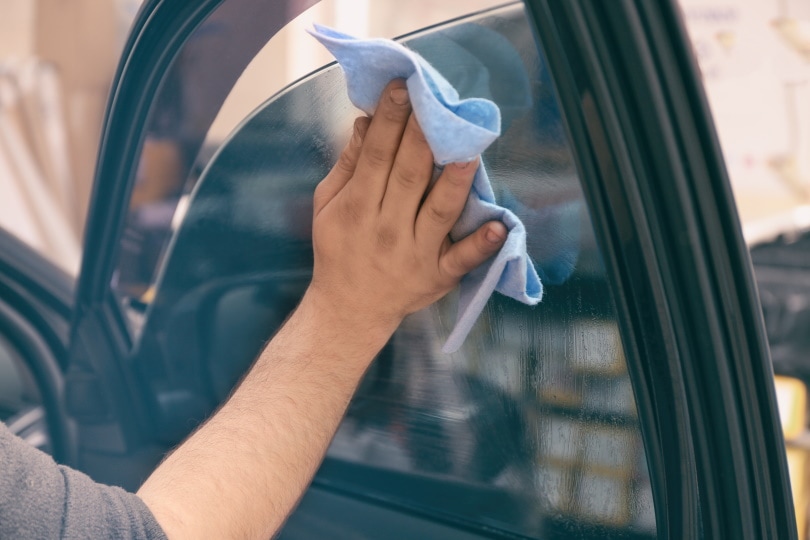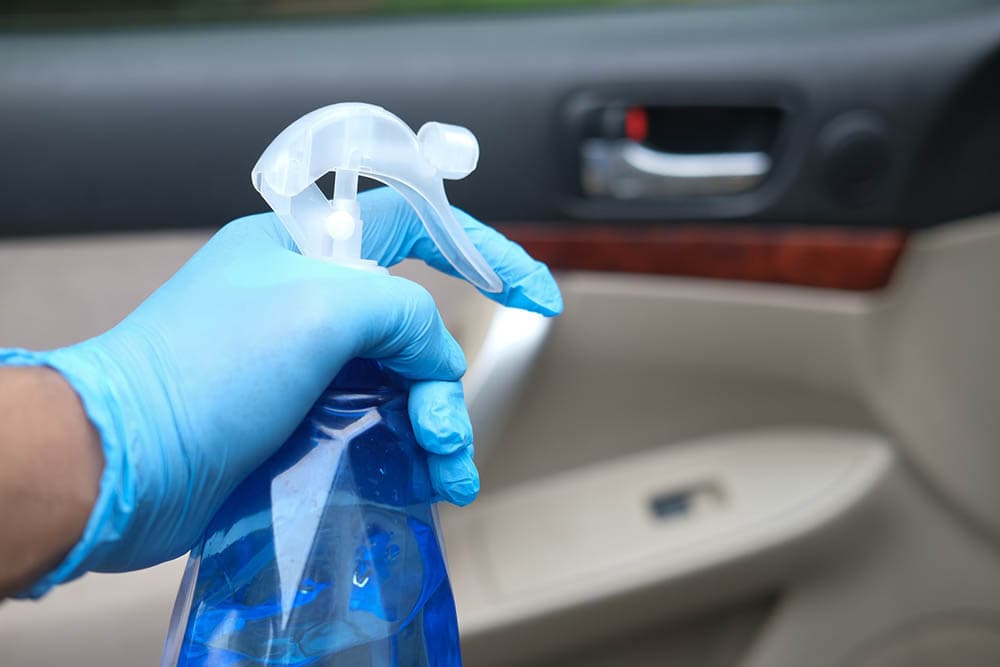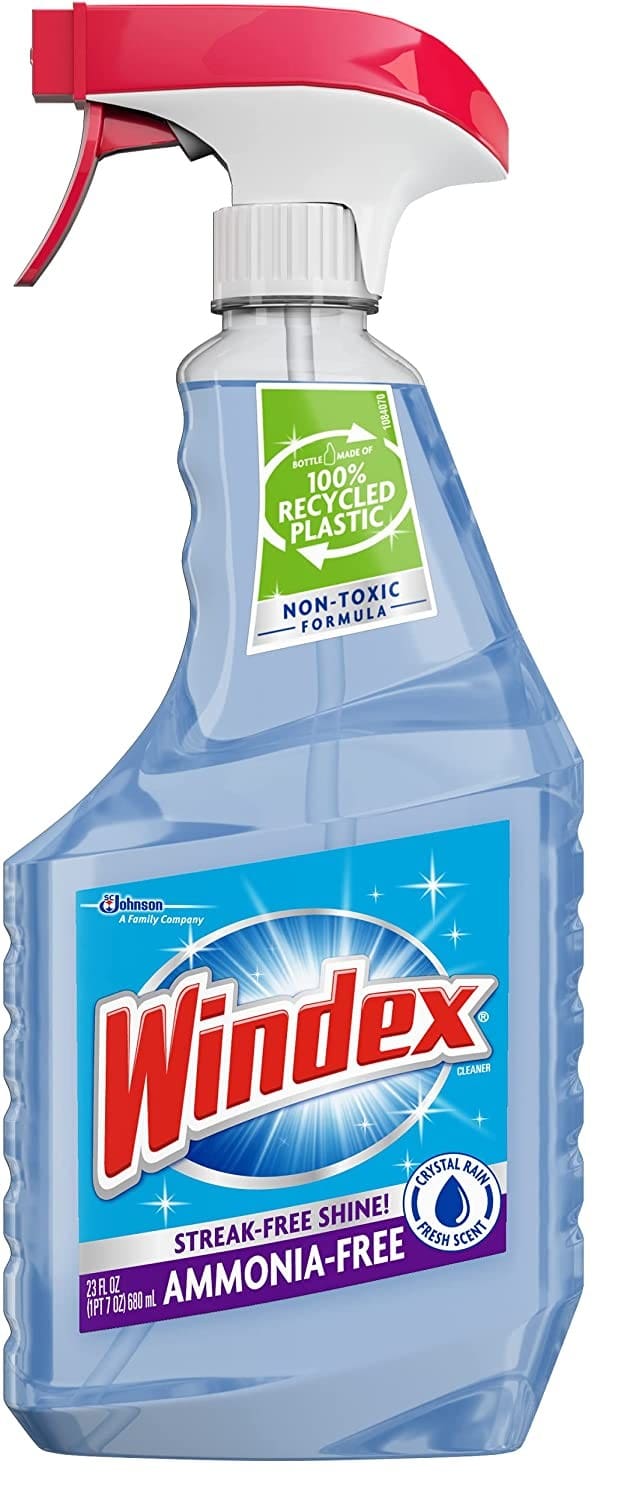Can You Use Windex On Car Windows?
-
Pete Ortiz
- Last updated:

There are many products on the market aimed at ensuring that you can keep your car clean and healthy. Many of these products make a point of telling consumers that they are specifically designed for use on car windows and automotive glass. However, several of these products are expensive, and not everyone has automotive glass cleaners lying around. Many people do have Windex at home for personal or home use. So, can we use that on our car windows as well? The answer is that it depends on the variety—ammonia-free Windex is safe, while the standard variety containing ammonia is not.
Let’s get into the details.
 Ammonia Free Is Key
Ammonia Free Is Key
Glass cleaners that contain ammonia are not recommended for use on automotive glass. Ammonia leaves behind streaks and can linger. Ammonia, if not wiped off properly, can actually attract dirt and cause ugly smears on the glass. For this reason, it is critical that if you use Windex on your car windows, ensure that it is the ammonia-free variety.
Not all Windex is free of ammonia. If you have regular Windex in your home, it is likely that it is the variety that contains ammonia and other undesirable compounds that can adversely affect automotive glass and car windows.
However, ammonia-free Windex is perfectly safe for use on car windows.
Windex Says Yes
On Windex’s official website, administered by their parent company Johnson & Johnson, they answer this very question. Windex says yes, it can be safely used on car windows. As we pointed out, Windex also recommends that if you want to use their products on your car you use the ammonia-free variety.
Windex’s exact wording is as follows. This quote is taken directly from the Windex Frequently Asked Questions website, saying:
“You can use Windex® Ammonia-Free Glass Cleaner on your car’s tinted windows, mirrors, glass, chrome, stainless steel, plastic, and vinyl surfaces.”
The company recommends waiting for the surface of your car windows to be cool and out of direct sunlight for the most streak-free shine possible. They even point out that they are confident that Windex can be used on more than just glass but on plastic, stainless steel, and other exterior features of a standard car.
The Cost of Windex Ammonia-Free Glass Cleaner
Ammonia-free glass cleaner is not comparatively more expensive than typical glass cleaners that do contain ammonia. The typical cost for a bottle of Windex Ammonia-Free Glass Cleaner runs around $4. A typical bottle of Windex costs around $3 per bottle. That means that choosing ammonia-free cleaners is not cost-prohibitive.

Other Automotive Glass Cleaners
Windex is not designed specifically for use on automotive glass. However, there are plenty of other glass cleaners that are. One of the most prominent examples of a competing product designed for use on car windows is Rain-X. Rain-X is specifically designed to not only clean car windows but also put a coating of water-repellent chemicals onto the glass. This coating causes water to bead and flow off windows, which makes it easier to see in wet conditions.
Windex does not have these added benefits. For that reason, if you are looking for a product specifically designed for use on cars, then Rain-X is perhaps a better choice.
Conclusion
The answer is yes, ammonia-free Windex can be safely used on automotive glass. For the best results, the glass cleaner chosen must not include ammonia. Be sure to check and see if your bottle of Windex does not include ammonia. If you want to purchase Windex for your car, be sure to choose the ammonia-free version. It will only cost you a few dollars per bottle.
Featured Image Credit: Africa Studio, Shutterstock
Contents

 Ammonia Free Is Key
Ammonia Free Is Key
